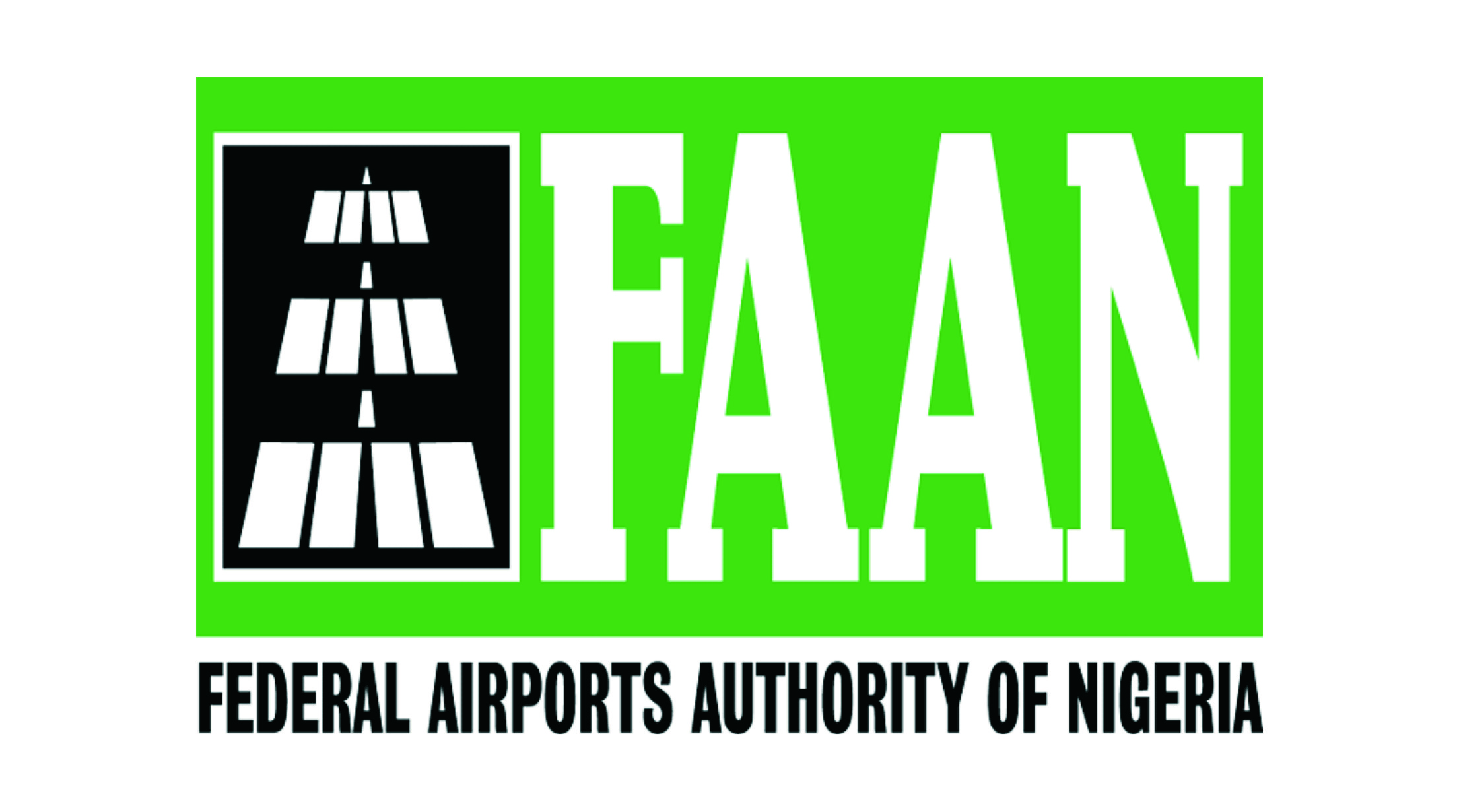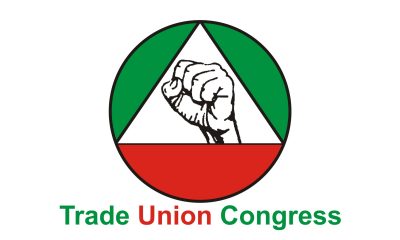Business
FAAN Laments 95% Revenue Fall, Hikes Service Charges By 100%

The Federal Airports Authority of Nigeria (FAAN), yesterday, said that its revenue has dropped by over 95 per cent in the wake of the lockdown declared to curtail further spread of Covid-19.
Its Managing Director, Rabiu Yadudu, said this at a press conference in Abuja while responding to a question on why FAAN decided to effect a 100 per cent increase in Passenger Service Charge at this time.
The increase of PSC from N1,000 to N2,000 per passenger for domestic flights, Yadudu said, would take effect from September 1, and had been communicated to all airlines.
“The increase is a matter of necessity. Our revenue is down by over 95 percent. In that case, we will do whatever we can legitimately to ensure we carry out our duties.
“We need to survive. There is no better time than now for FAAN to do this,” he said.
Describing airport management as capital intensive, Yadudu noted that FAAN has not increased PSC since 2011 despite all the huge capital investments at the nation’s airports.
He said the current N1,000 charge was no longer realistic and that it did not correlate with realities of cost-related inflation rate which the Central Bank of Nigeria (CBN) put at 12.82 per cent.
The managing director said FAAN, until late 2019, was collecting naira equivalent of PSC at an official rate of between N305.50 and N344.38 to a dollar while airlines were collecting at subsisting market rate of about N362 to a dollar.
He added that the Federal Government is increasing its direct deduction from FAAN to 40 per cent from 2021.
He said with such deduction, FAAN will have a shortfall of over N16billion on overhead cost, hence, the authority decided to engage the government in order to be exempted from the deduction.
Yadudu said, “It has, therefore become imperative to review the Passenger Service Charge from N1,000 to N2,000 per passenger.
“This review which takes effect from September 1, 2020, has already been communicated to the airlines.
“We, therefore, implore stakeholders, airport users and the general public to bear with us as FAAN is laden with so much overhead cost of operation.”
The managing director said as the nation prepares for the resumption of scheduled international flights, new advisories for airlines and air travellers would be rolled out.
He said the advisories would be made public as soon as they are ready.
While answering a question on the latest on the latest on the alleged violation of Covid-19 protocols by VIPs at the nation’s airports, Yadudu said the task was being handled by the Nigerian Civil Aviation Authority (NCAA) and the they nation would hear from the authority as soon as it is ready.
He also said the NCAA was working with the Ministry of Aviation and airlines on the planned resumption of scheduled international flights.
“Don’t let us assume all airlines will be ready by that time. We are opening our door, it is left for the airlines to come through the door,” he said about the resumption in international flights.
Business
Bayelsa Begins EIA On 60MW Power Plant

The Bayelsa Electricity Company Ltd, in collaboration with the Federal Ministry of Environment, on Friday, commenced the Environmental Impact Assessment (EIA) for the proposed 60-megawatt (MW) power plant.
The Tide’s source reports that the power plant project, led by the Bayelsa State Government, is in Elebele, on the outskirts of Yenagoa, the state capital.
The source also reports that the State Governor, Douye Diri, had announced plans to establish an independent power project to end the state’s reliance on the national grid and provide an uninterrupted power supply across Bayelsa.
The Director of Operations at the Bayelsa Electricity Company Ltd., Steve Bubagha Jnr., conducted the Minister of Environment, Balarabe Lawal, and his team around the project site.
Mr. Bubagha explained that the company planned to install a 60MW “plug and play” gas-fired turbine that would receive gas feed from the Oando gas manifold in Elebele.
He said the land area for the project is approximately 5.8 hectares, with 2.1 hectares currently being used.
“The Independent Power Plant is officially known as the ‘Yenagoa Power Project. This is a ‘Plug and Play’ Gas Turbine.
“What we mean by ‘plug and play’ is that the turbine is already set to be installed upon arrival from the manufacturers.
“We are only working on other components, so the turbine should be running in less than two years, or at most, in two years”, Bubagha explained.
Following the site visit, the environment minister, represented by Adimchinobi Okereke, emphasised that the purpose of the visit was to ensure the EIA process adhered to standard guidelines before granting final approval to the project.
He lauded the state government for initiating the project, noting that once completed, it would benefit Bayelsa and contribute to solving Nigeria’s power supply challenges.
Azibola Inegite, a professor and Dean of the Faculty of Science at Niger Delta University, and the EIA consultant for the project, assured that international best practices would be followed in conducting the EIA.
He emphasised that the EIA was essential for the successful execution of impactful land and environment-related projects.
On his part, the technical adviser on Print Media/Public Affairs to Governor Diri, Wisdom Ikuli, commended the Governor for his vision in executing the project.
He stated that the 60MW power plant would help reduce the state’s frequent power outages and boost business growth, thereby accelerating industrialisation.
A key part of the minister’s visit was the “Stakeholders Engagement Scoping Workshop for Environmental Impact Assessment of Proposed Gas Powered Plant and Gas Delivery Pipeline in Bayelsa State”.
The workshop brought together stakeholders from Elebele, whoch include the host community, and Kpansia, an impacted community in Yenagoa Local Government Area.
Business
Firm Unveils Solutions To Oil Logistics Challenges

A firm, Fortune Global Shipping and Logistics Limited, said it has concluded plans to unveil an excellent and cost-effective logistics solution for oil and gas logistics, project cargo, customs clearance, consolidation, and construction, among others, in Lagos State.
Announcing this in a statement on Friday, the company said the initiative would be unveiled during the 2025 Sub-Saharan Africa International Petroleum Exhibition and Conference.
It stated that the event is billed to take place in Lagos this week.
SAIPEC is an annual global event which focuses on harnessing a sustainable African energy industry through partnerships.
Fortune Global explained that the exhibition promises to engage with other key industry stakeholders, decision-makers, and experts across Sub-Saharan Africa’s energy supply and value chain.
“We invite you to experience more and find out about Fortune Global’s latest innovations in oil and gas logistics. Connect with Fortune Global Shipping and Logistics Limited at the Exhibition Booth N21, Eko Convention Centre, in Lagos”, the statement stated.
Business
Nigeria, Still Africa’s Largest Economy – World Bank

Nigeria remains the largest economy in Africa going by Gross Domestic Product (GDP), in spite of the challenges faced by yhe country’s private sector.
World Bank’s Country Director for Nigeria, Dr. Ndiame Diop, who confirmed this at the Country Private Sector Diagnostic (CPSD) and Stakeholder Engagement in Abuja, Friday, said while Nigeria receives far less Foreign Direct Investment (FDI) than its potential warrants, especially in comparison to countries like Indonesia and South Africa, it continues to hold its position as Africa’s biggest economy.
He said the CPSD report, set to be released in the coming weeks, will reveal the impact of private sector constraints on economic growth.
Diop noted that if targeted actions were taken to remove these obstacles, Nigeria’s economic potential would be significantly enhanced.
He explained that the current macroeconomic reforms have created a favourable environment for such changes.
He cited the country’s recent economic stabilization measures, particularly exchange rate market adjustments and improved access to foreign exchange, as critical steps that have already enhanced investment conditions.
The Country Director outlined four key sectors where strategic reforms could unlock massive investment and job creation.
He stayed that in the Information Communication Technology (ICT) sector, investment opportunities worth up to $4 billion could be realized, potentially creating more than 200,000 jobs.
In agribusiness, reforms could unlock $6 billion in investment and generate over 275,000 jobs.
The solar photovoltaic (PV) industry holds the potential for $8.5 billion in investment and more than 129,000 jobs, while the pharmaceutical sector could attract $1.6 billion and create more than 30,000 to 40,000 jobs.
For the ICT sector, he identified the high, unpredictable, and inconsistent right-of-way fees, levies, and informal charges, comprising 30 to 70 per cent of broadband rollout costs, as a major barrier.
According to him, addressing these regulatory inconsistencies would be a game-changer for broadband expansion.
He acknowledged that the National Economic Council has recognized this issue and that progress is being made through a World Bank-supported initiative.
He also noted challenges such as vandalism, limited financing for rural broadband expansion, and the need for competitive access to wholesale fiber.
Dr. Diop further noted that efforts are underway in collaboration with government agencies to resolve these issues, and the World Bank, the International Finance Corporation (IFC), and private investors are prepared to support broadband infrastructure development.
On solar power, Diop described Nigeria’s energy sector as difficult but noted that renewable energy access, particularly solar PV, has been a bright spot.
He explained that private sector investment in renewable energy has historically been hindered by high costs and unviable tariffs.
However, blended finance mechanisms supported by the World Bank and IFC have helped bridge this gap, making off-grid solutions more viable.
He noted the DES project, which aims to connect 17.5 million households and businesses to solar power, as evidence of growing private sector interest.
While the solar industry is expanding, he stressed that reforms to improve Nigeria’s grid electricity supply remain crucial for industrialization.
On her part, the Regional Director for Central Africa and Anglophone West Africa at the IFC, Dr. Dahlia Khalifa, stressed the importance of consistency in regulatory policies, particularly in customs duties and revenue agency fees.
She noted that unpredictability discourages private sector investment, as businesses rely on stable regulatory environments for strategic planning.
-
Rivers5 days ago
Appreciate God, Elder Statesman Urges Nigerians
-

 Sports2 days ago
Sports2 days agoEaglesite Football Academy Targets Grassroots Dev
-

 News2 days ago
News2 days agoRelatives Of Deceased Pension Contributors Get N82bn –PenCom
-

 Niger Delta2 days ago
Niger Delta2 days agoPolice Arrest Boy, 13 For Using Gun To Threaten Colleagues
-

 Featured5 days ago
Featured5 days agoTUC Opposes FG’s Proposed Toll Gate On Federal Roads, Rejects Electricity Tariff Hike
-

 News5 days ago
News5 days agoBe Consoled, God Who Gives, Also Takes, Fubara Tells Principal Secretary
-

 Opinion2 days ago
Opinion2 days agoEFCC’s Alternative Approach Against Cybercrime
-
News2 days ago
NDLEA Busts Drug Kingpins In PH, Lagos As Suspects Excrete 125 Heroin Wraps

